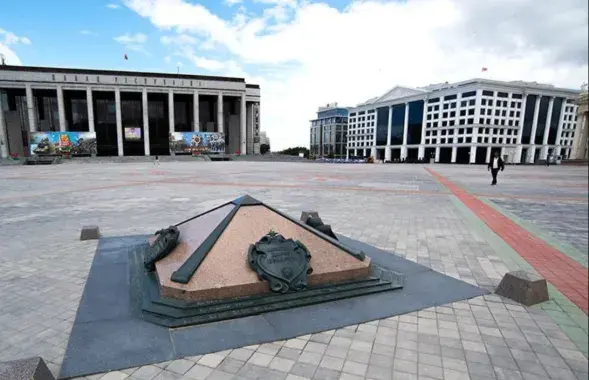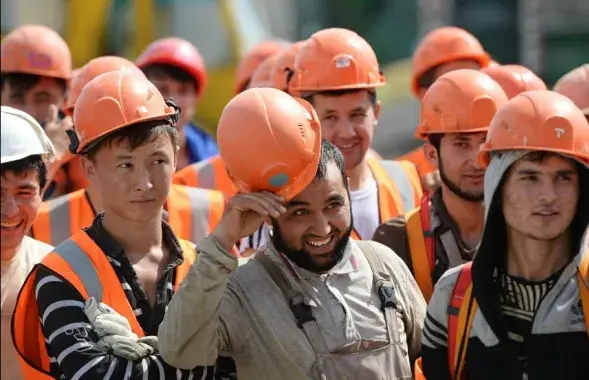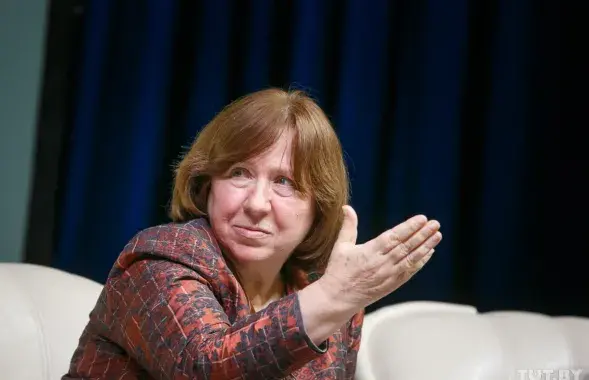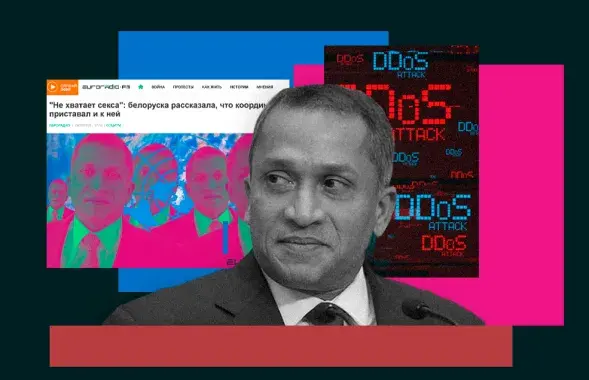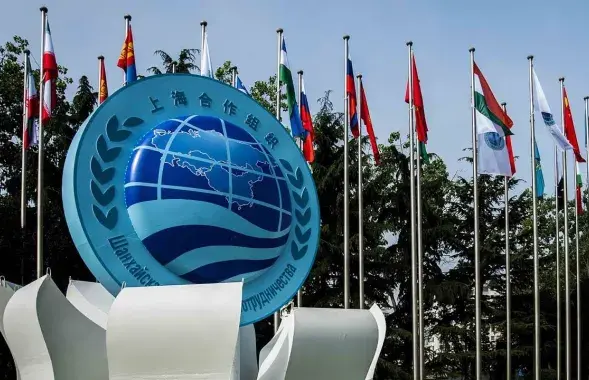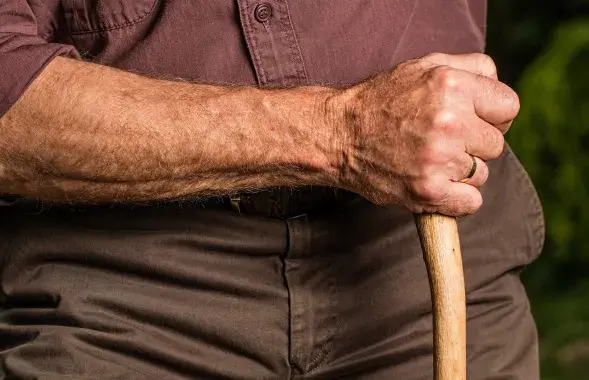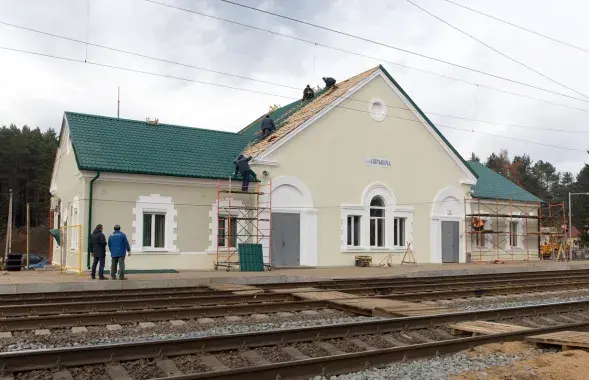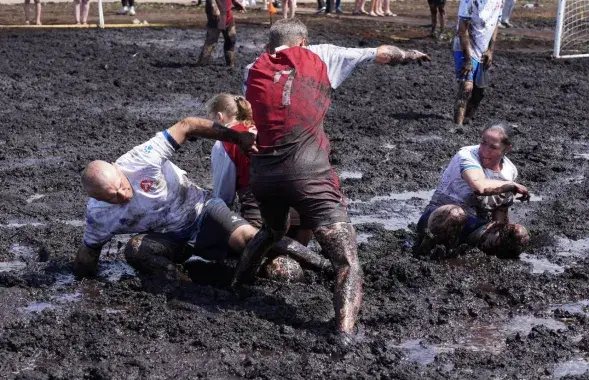How Belarusians volunteer for the war
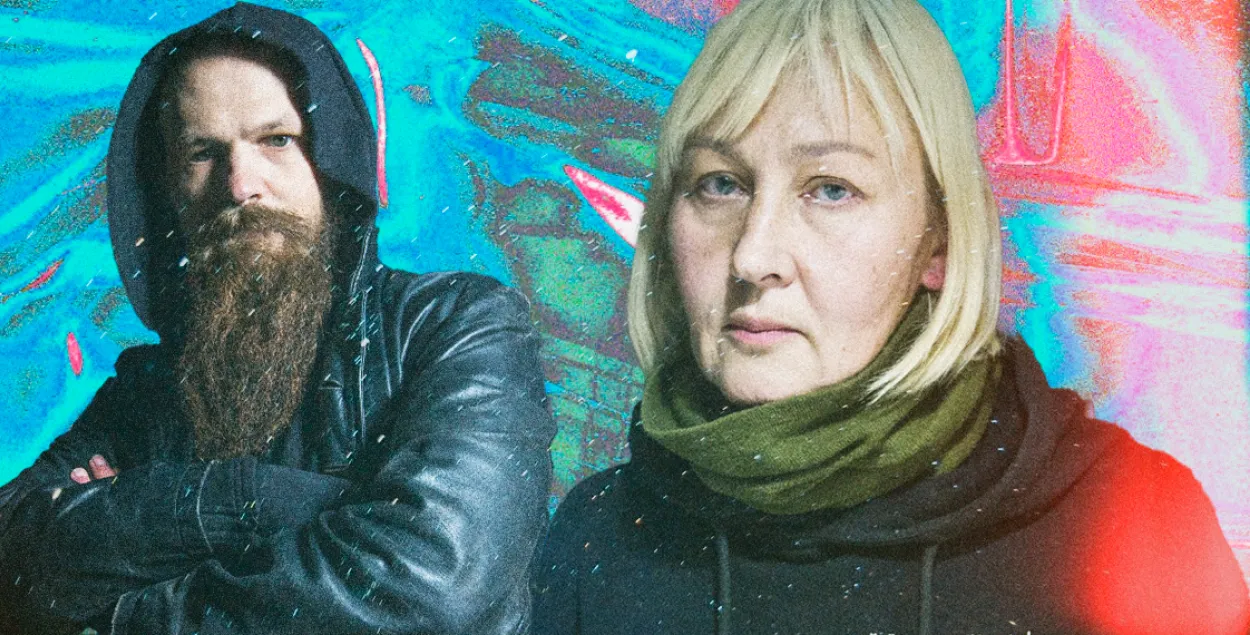
Miraslau and Natallia - Belarusian volunteers in the Ukrainian army / collage by Ulad Rubanau, Euroradio
"My name is Natalia," a blonde woman of about 55 introduced herself.
Natallia wears a black hoody and a dark green scarf. She takes off her glasses when she tells her story; when she goes for a smoke, she puts them back on. If you look at Natallia's photo, you would never think she was a fighter of the Belarusian "Terror" volunteer battalion.
Natallia was brought here by grief - her son Pavel with a call sign "Volat," died defending Ukraine.
"He was born a warrior. I think he belongs to the people who are the bearers of the Belarusian nobility. They are, above all, warriors. When the war begins, when Moscow rascals want a piece o Belarusian land, the Belarusian nobleman has only one way - take arms. In 2014, Pasha served his compulsory military service in Belarus. As soon as he finished it, he immediately went to Ukraine.
Son as an example
Pavel left the front only three times - after injuries, recalls Natallia. Starting in 2017, he was in the Armed Forces of Ukraine, engaged in reconnaissance and sabotage activities, and was the group commander.
"After he was wounded the first and second times, he didn't even go through rehabilitation: he said that when he wasn't with the group, it was a big risk for his subordinates. He had a great gift for planning," she says.
When Russia's full-scale invasion of Ukraine began, Natallia was at home in Belarus and had no plans to leave. She says she considered it "nonsensical" to leave her country when it was filled with horrors like repression, arrests, and intimidation.
"I would probably be in jail now. But I was ready for that. When Pasha died, I went to Ukraine, knowing there was no way back. And I had no other way but to join the Belarusian volunteers".
She calls today's Russia "the concentrated evil" and a threat to Ukraine and the entire civilized world. Now, the woman says, she is close to those who also understand this and can stand up against this evil, knowing that it may cost them their lives.
"How not to love these boys? How not to try to make it a little easier for them both morally and physically? I don't know. And that's why I'm here".
Natallia is now a paramedic in the battalion. But her role is much more significant; she's one of the symbols of the volunteers.
Do what's right
Miraslau, aka "Mir," worked in the IT sector in his "previous" IT life, but now he is a communicator. Like Natallia, his main job is not fighting but helping those on the front lines.
"I have to admit that I was in a position where it was easier to take off and go somewhere. On the one hand, on the emotional side, my girlfriend had left me sometime before, and I was still not over her. And I quit my job just then because it no longer satisfied me. And yes, I make less here than I made at my last job or could make. But I felt that I wanted to help Ukraine. Not any particular person. I feel I need to help bring peace. I am not here to kill Russians but to bring this conflict to an end - in favor of the truth.
Miraslau has a long beard and a laptop at his workplace. He says he has been living in Cracow in recent years and ended up going to Ukraine, specifically from Poland.
"It's just that since the start of the full-scale war, the presence of this conflict has gradually increased in the media sphere and everyday life. In Cracow, there are a lot of refugees from Ukraine. But on the whole, my decision to come here results from inner convictions. And specifically, in this case, I found the principle closest to the categorical imperative: to act in such a way, according to the rules, that you would like to become universal.
Miraslau has been in Ukraine since May and has been on the frontline for about five months. When asked, "how does it feel" he smiles and says, "fine."
"As a radio communications specialist, I have most of my functions at the base. I've only been out in the field a couple of times, and I've even stayed in an operating post instead of going into combat".
With a job like that, he says, there's less chance of getting post-traumatic stress disorder or burnout. But there is also quiet time: Miraslau likes exciting and challenging tasks, and sometimes there are none - and then it gets boring.
"Lack of comfort can also be tiring. I miss a hot bath or a shower because we have difficulties with water here. As for shelling, I can not speak for others; I can say that we have soldiers who came under fire at the front and then the shelling in Mykolaiv became a trigger for them. I got used to it pretty quickly. A person can get used to anything".
Euroradio's characters are members of the "Terror" battalion. This is a unit of the Armed Forces of Ukraine made of Belarusian volunteers. The battalion used to be part of the Regiment named after Kastus Kalinouski.
Made with the support of Mediaset.

